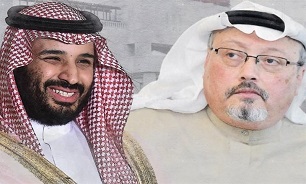US Universities Reconsidering Ties with Saudi Arabia
 Yet some of these schools are reconsidering their ties with the Riyadh government following the killing of Saudi journalist and writer Jamal Khashoggi. His death has led to international criticism of the oil-rich nation.
Yet some of these schools are reconsidering their ties with the Riyadh government following the killing of Saudi journalist and writer Jamal Khashoggi. His death has led to international criticism of the oil-rich nation.
AP examined US federal records for information about the flow of Saudi money to American higher education. The news agency found that at least $354 million from the Saudi government or organizations it controls has gone to 37 American schools since 2011.
Much of the money was provided through a special scholarship program. It paid tuition for Saudis studying in the United States. But AP researchers found that at least $62 million came through deals with or gifts from Saudi Arabia’s nationally owned companies and research centers.
Two of the US schools that received the most money did so through contracts with a top Saudi research center. It is called the King Abdulaziz City for Science and Technology. It has provided $14 million to Northwestern University, in Evanston, Illinois, since 2011. The University of California, Los Angeles accepted $6 million from the center.
In addition, Saudi Arabia’s national oil company, Saudi Aramco, has given $20 million to US colleges and universities. This amount includes $9 million to Texas A&M University, in College Station, Texas, and $4 million to the Massachusetts Institute of Technology, or MIT, in Boston. A national chemical company known as SABIC sent another $8 million to American schools.
Some of the contracts ended before 2017. But questions about Khashoggi’s death at the Saudi consulate in Istanbul have led some schools to reconsider current or future deals.
On October 22, MIT announced plans to launch a “swift, thorough” examination of its partnerships with Saudi Arabia. The institute called Khashoggi’s disappearance a serious concern.
Richard Lester is a member of the school’s administration. He said professors who work with Saudi Arabia can make their own decisions “as to the best path forward.”
MIT works with Saudi universities on research projects and has a long history of working with Saudi Aramco. In March, the company promised to give $25 million to the school for research in areas such as renewable energy and artificial intelligence.
Babson College, near Boston, has received $2.5 million through a contract with the Saudi company SABIC. College officials said they are watching events closely and gathering opinions from their community about how to move forward. Babson’s deal provides training to Saudi business leaders. And it also includes several other research and training partnerships between Babson and Saudi universities.
However, many other US schools have shown no signs that they are reconsidering ties.
Officials at the University of California, Berkeley, said they are not examining their financial support from Saudi Arabia. The money includes a $6 million contract to develop special technology that can be used to support renewable energy. A university spokesman said the Saudi support represents only a small part of the contracts and grants that go to the school’s researchers.
Northwestern University refused to say whether any of its money from Saudi Arabia is under review. A spokesman said only that the majority of the $14 million is for science grants, but he did not answer other questions.
Others schools, including the University of Michigan, did not provide details about Saudi Arabia’s financial support.
Researchers looked at records from the US Department of Education’s Foreign Gift and Contracts Report. It lists any US university that received $250,000 or more in foreign money in a given year. The self-reported information lists money provided from 2011 through 2017.
The largest amounts of money came through a Saudi scholarship program that sends thousands of students to US schools every year. The program provided $73 million to The George Washington University, in Washington, D.C. George Mason University, in nearby Fairfax, Virginia, received $63 million.
The two schools said they will not refuse the scholarship money because it would cause them to reject the students it covers. George Mason admits about 250 Saudi students through the program each spring and autumn term.
Message end/
